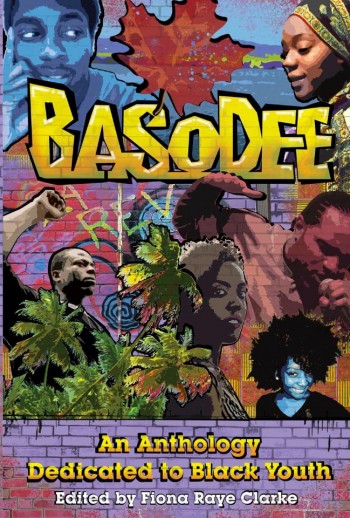LITERARY JOURNAL REVIEW – BASODEE
Although the name Basodee, is a Trinidadian word meaning half conscious and disoriented, this book is anything but. Basodee is an anthology of the intellect, vision, good and bad experiences, personalities of the talented youth of the African Diaspora by whom this was written. It was part of an awareness project that underscores the positive and negative aspects of the racial outlook of many African Canadian Youth, effectively forcing youth to self-define their identities and seek knowledge and education as a means to redefining themselves through their own actions and mechanisms rather than through racial stereotypes.
Basodee simultaneously deconstructs racism within Canada, as well as Black Identity as defined by Canadian Youth. It presents a detailed dialogue showing the many facets of the African Canadian experience and how the personalities of the diverse African Diaspora fit into the current political-economic-social constructs within Canada
Basodeeis as a collective offering, providing a comprehensive representation of Black Canadian youth from all elements of the African Diaspora within Canada. Contributors include Michael Grandsoult, Fiona Raye Clarke, Freddy King, Huda Hassan, Adhimu “Mindbender” Stewart, David Delisca, Bella Galina Ingabire, Yasmine Mathurin, Wendy Hayes, Danian Walker, and Tendesai Cromwell. I, too, was proud to be a part of this project.
The Foreword by Rosemarie Sadlier, Order of Ontario, President of the Ontario Black History Society (OBHS) reflects the impact makeup and significance to the construct of the culture, history and identity of the African Diaspora within Canada. The Preface and Introduction by Fiona Raye Clarke provides an intellectual road map, highlighting the prominence of this book on its key subject matter, Black History and the Canadian youth
Africanuck (Mis) Education: The Belittling of African Canadians by Michael Grandsoult is a well written piece powerfully portrays an inherent form of educational apartheid that has been in existence since slavery, its abolition and the decades of unbalanced educational empowerment that have continued since then.
I wrote a letter to myself by Huda Hassan.strongly and poetically speaks to the value and strength of African heritage effectively, within the stanza like format it is presented in. Huda cleverly communicates how to avoid getting lost within the perceived “melting pot” and how to protect your cultural identity and heritage while integrating with the majority of Canadian Society.
GBC by Michael’s Grandsoult draws from the educative and entertaining premise of African Oral Literature and tradition, where much of African cultural wisdom comes from and is passed on from one generation to the next. In North America, oral tradition was reincarnated in the form of RAP (Rhythm and Poetry Music- educating and entertaining Rhythm and Poetry) RAP has sadly lost its way. Its successor Spoken word, now serves to fill the gap.
Despite having identified himself as a “Guyanese descendant”, Michael’s proclamation that he carries two identities, “2 nationalities I hold”, should and must resonate with every person of African descent within the African Diaspora! Though it is important to become a “naturalized citizen”, if not born in Canada earning citizenship should not prevent you from embracing your heritage fully.
Emerging Beautiful by Tendesai Cromwell is reminiscent of many of the great African short stories I read in high school! Tendesai cleverly combines two of the constant characteristics exhibited within African writing: short story format and metaphorical representations employed to communicate valuable life lessons and ideals.
This story immediately serves to highlight the numerous contradictions within Canada, marked along clearly defined racial lines. She speaks of areas of Toronto as “bloated with unfulfilled immigrant dreams, filled with the sour stench of neglect.” The main character’s identity changes within her name (Grenzenu/Zenu) and what connotations are assigned to each. She examines herself in depth, getting a grasp of her inner person which is soon interrupted by the career chasing work environment of modern society that we are all subject to.
Zenu tries to find her stride but as she walks through the city feeling disconnected witnesses the same in others. Her self-pity/shame is a key subject/theme in this story but in the end this is an inspiring and sad piece. While she may not let other people define her, the façade that she has created to protect herself is also her cage. A cage she sadly returns to despite her brief engagement of her own dreams and fantasies about which she has been taught to be conflicted.
Mutendei Akhaya Nabutete


